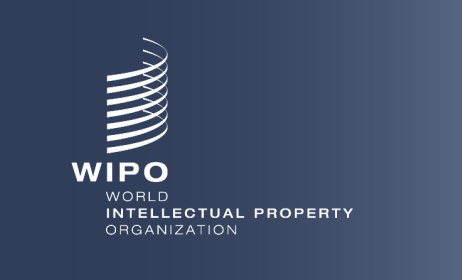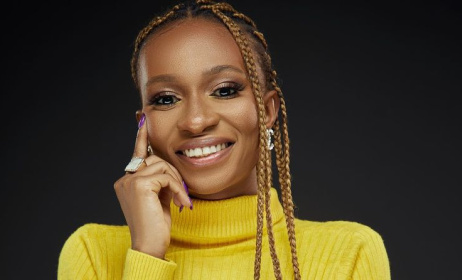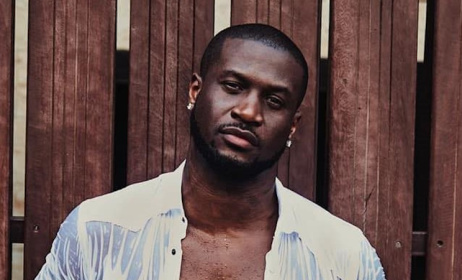West Africa: How to stem copyright infringement
Without doubt, West Africa is a socio-cultural hub predisposed to intellectual property abuse. But so much can still be done to stem the tide. This noble effort can salvage the sub-regional creative industry in view of repeated calls by several international bodies for Africa to look towards the arts and culture sector for economic bailout.
 Nigerian artist 2Baba is an outspoken critic of CMOs in his country.
Nigerian artist 2Baba is an outspoken critic of CMOs in his country.
Stemming the proliferation of copyright abuse in West Africa must begin with the following measures:
Awareness
In reality, many do not understand that intellectual property is an asset much like land, property or any tangible and prized possession. This, regrettably, is not only limited to the common man, who often wonders why anyone should pay for music played for commercial purposes, but also to the artist, who owns the musical works.
A few years ago, in Nigeria, there was this impression among new musicians that the easiest way to confirm their rating in the industry was to have their songs available on mixtapes, which are often pirated. This precipitated a desperation, with many artists resorting to paying to be on these mixtapes.
“When I released my first album You Must Laugh I did not mind paying the boys at Alaba Market [in Lagos] to add some of my songs to the pirated playlist, because that way your songs get to circulate," comedian Sheddi Baba says. Many did get their breakthrough via this route, but at whose expense in the long run?
Ghanaian gospel singer and copyright activist Diana Hopeson notes that at the onset of her career she was more interested in winning awards and getting musical recognition than earning royalties, which were paltry and required cumbersome paperwork. “The worst happened when I went on tour to Europe in 1995 and wanted to replicate some of my music on CD," she says. "That was when I heard about mechanical royalties. We had to pay an extra amount apart from the cost of the CD and I went like this, ’Please, the CD is mine, the money will still come to me so wave that off…’ But it was a big no. Then, I realised that registering my work with the copyright office and the collective management organisation [CMO] is not enough as an artist. One needs to consciously get some knowledge in intellectual property to be efficient as an artist."
Perhaps, the situation of middle men dealing in pirated musical works is even worse. Some time ago, a Nigerian trader arrested for stocking pirated musical works in his shop told the law enforcement agents that he did nothing wrong because he had "bought his goods with money" and was hoping to resell and make a profit like "any other trader". This goes to show there is a great need to sensitise the public about piracy and what constitutes an infringement, so that market unions, transporters and other users of musical works can better appreciate it as a crime. Many have suggested that enhancing the educational curriculum in West African schools and universities to teach copyright will help a great deal.
Unity among music stakeholders
This is lacking in the sub-region and the result is frequent litigation among contending interests over who controls what in the industry. In Nigeria, the Copyright Society of Nigeria (COSON) and the Musical Copyright Society of Nigeria (MCSN) have been embroiled in several legal tussles over who should be in charge, and the implication, of course, is that funds which ordinarily would have gone to artists as royalties end up in the pockets of the police, lawyers and agents. Musician 2Baba captured this in a recent outburst: “Musician work, lawyer and police chop everything finish. My people, no be one chance we don enter so o? If you ask me, na who I go ask?” It was in view of this that COSON chairperson Tony Okoroji dedicated the 2019 edition of the annual No Music Day to unity, urging members of Nigeria’s creative industry to forestall attempts by external influences to permeate their ranks.
There should also be unity among CMOs in the sub-region. From COSON and MCSN in Nigeria to the Ghana Music Rights Organisation (GHAMRO), and the others, there must be synergy in their operations aimed at protecting the interests of artists. According to COSON CEO Chinedu Chukwuji, letting users know that music is a property is one of the biggest missions of today's CMOs. “However, another factor is a lack of proper coordination among organisations in the West African region,” he says. In doing this, CMOs must find an acceptable framework for all to harness the potential of the creative works available to them. If this is done, the fad of rerecording songs of popular artists in other local dialects in the sub-region will be greatly eradicated because the authorised CMO can represent the interest of creators within the region in its domain.
Institutional corruption
Institutional corruption must be dealt with if artists are to benefit in terms of copyright and royalties. Tackling this from the root will have to involve the governments in the sub-region to find effective ways of reducing poverty and instilling a sense of social security among the citizenry. In the intellectual property sector, there must be a reorientation by CMOs to instil effective financial compliance. Their books must be open and accessible in order to engender trust in the artists; a lack of transparency is one of the main reasons bigger artists often choose to ignore the services of CMOs. Nigerian rapper MI Abaga says: “Most artists don’t think there is a lot of monetary value from royalties. But I think that is changing very quickly and it’s going to become better once the COSON crisis is sorted.”
Tackling corruption within regulatory bodies and the judiciary cannot be overemphasised. In some unsavoury instances, the regulatory agencies have had to partner with the defaulters, as was witnessed by Charles Ayika, whose creative work 'Arrows of Love' was violated by MyTV, resulting in a legal battle in both Ghana and Nigeria.
“The Nigerian Copyright Commission compromised and colluded with the defaulters who made confessional statements on paper with the commission," he said. "On this basis, I wrote a petition to the then President [Goodluck] Jonathan of Nigeria. The commission detained and released me on bail for alleged unlawful possession of federal government’s documents, an offence that is strange to law, and I sued them for human rights violation leaning on the bail bond.
"In Ghana, my civil suit went through three high court judges with strategic interventions from Justice Woods, the chief judge of Ghana, influenced by my personal petitions to her, before it got to the desk of Justice Nkrumah who finally determined the case in 2017. Even at this point, the judge compromised and so the compensation was not to my satisfaction considering the clear court proceeding on the matter; hence the Appeal Court deliberations on the same matter that gave rise to a satisfactory compensation for me in 2019.”
At this stage, retooling the legal framework in the sub-region is also important to make sure there is harmony in the provisions of the laws with regard to copyright violations. This could be handled a the Economic Community of West African States (ECOWAS) level with special attention given to online violations, as some of the available laws were created without the digital era in mind. Having achieved so much through treaties in other sectors, ECOWAS should replicate this in the area of intellectual property, beyond the usual trademark threshold synonymous with its operations.
Effective border management will also enhance copyright administration in the sub-region. While this does not mean sealing the borders in view of the ECOWAS Protocol on Free Movement, immigration and customs officials must be equipped to recognise pirated works being ferried across borders.
Ngozi Emedolibe is a Nigerian journalist, communications strategist and art critic.



























Commentaires
s'identifier or register to post comments